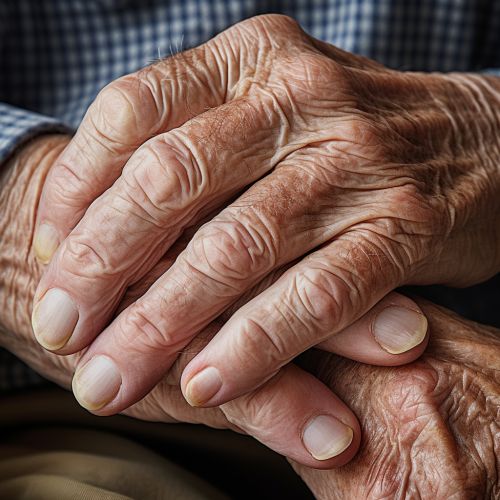Ageing
Introduction
Ageing, also known as senescence, refers to the biological process of growing older, characterized by a gradual decline in an organism's functional capacity. This process is universal among all living organisms, from simple unicellular organisms to complex multicellular organisms like humans. Ageing is a complex phenomenon influenced by a myriad of factors, including genetics, environment, lifestyle, and disease.


Biology of Ageing
The biology of ageing involves changes at multiple levels of biological organization, from molecular and cellular changes to alterations in organ systems and overall physiology.
Molecular Changes
At the molecular level, ageing is associated with the accumulation of various types of damage. For example, there is an increase in DNA damage due to the accumulation of mutations and the reduced efficiency of DNA repair mechanisms. Proteins, the workhorses of the cell, also undergo changes with age, including misfolding and aggregation, which can disrupt cellular function. Lipids, which make up cell membranes, can undergo oxidative damage, leading to altered cell membrane function.
Cellular Changes
At the cellular level, ageing is characterized by a decline in cellular function and an increase in cellular senescence. Senescent cells are cells that have lost their ability to divide but remain metabolically active. These cells often exhibit changes in gene expression and secrete factors that can influence the surrounding tissue environment, a phenomenon known as the senescence-associated secretory phenotype (SASP).
Organ and Systemic Changes
At the organ and systemic level, ageing is associated with a decline in the function of various organ systems. For example, the cardiovascular system undergoes changes with age, including stiffening of the blood vessels and a decline in heart function. The immune system also changes with age, a process known as immunosenescence, which is characterized by a decline in immune function and an increase in chronic low-level inflammation, termed inflammaging.
Theories of Ageing
Several theories have been proposed to explain the biological process of ageing. These theories can be broadly classified into two categories: programmed theories and damage or error theories.
Programmed Theories
Programmed theories suggest that ageing is a result of a genetically programmed sequence of events. One of the most well-known programmed theories is the telomere theory of ageing. According to this theory, the progressive shortening of telomeres, the protective caps at the ends of chromosomes, leads to cellular senescence and ageing.
Damage or Error Theories
Damage or error theories propose that ageing is a result of accumulated damage to the cells and tissues of the body. This damage can be caused by various factors, including oxidative stress, DNA damage, and protein misfolding. The free radical theory of ageing, proposed by Denham Harman, is a well-known damage theory. According to this theory, reactive oxygen species (ROS), which are byproducts of normal metabolism, cause damage to cellular components, leading to ageing.
Ageing and Disease
Ageing is a major risk factor for many chronic diseases, including cardiovascular disease, cancer, diabetes, and neurodegenerative diseases such as Alzheimer's disease and Parkinson's disease. The relationship between ageing and disease is complex and is influenced by a variety of factors, including genetics, lifestyle, and environment.
Ageing and Cardiovascular Disease
Ageing is a major risk factor for cardiovascular disease, the leading cause of death worldwide. Age-related changes in the cardiovascular system, such as arterial stiffening and endothelial dysfunction, contribute to the development of cardiovascular disease.
Ageing and Neurodegenerative Diseases
Ageing is also a major risk factor for neurodegenerative diseases, which are characterized by the progressive loss of neurons in the brain. Age-related changes in the brain, including the accumulation of protein aggregates and the decline in neuronal function, contribute to the development of neurodegenerative diseases.
Ageing Research
Ageing research aims to understand the biological process of ageing and develop interventions to extend healthy lifespan. This field of research is multidisciplinary, involving fields such as genetics, cell biology, biochemistry, and physiology.
Genetic Studies
Genetic studies have identified several genes that influence lifespan in various organisms, from yeast to humans. These genes are often involved in key biological processes, such as DNA repair, protein homeostasis, and metabolism.
Interventions to Slow Ageing
Several interventions have been shown to extend lifespan and delay age-related diseases in various organisms. These interventions include dietary restriction, exercise, and pharmacological interventions. For example, rapamycin, a drug originally developed as an immunosuppressant, has been shown to extend lifespan in various organisms, from yeast to mice.
